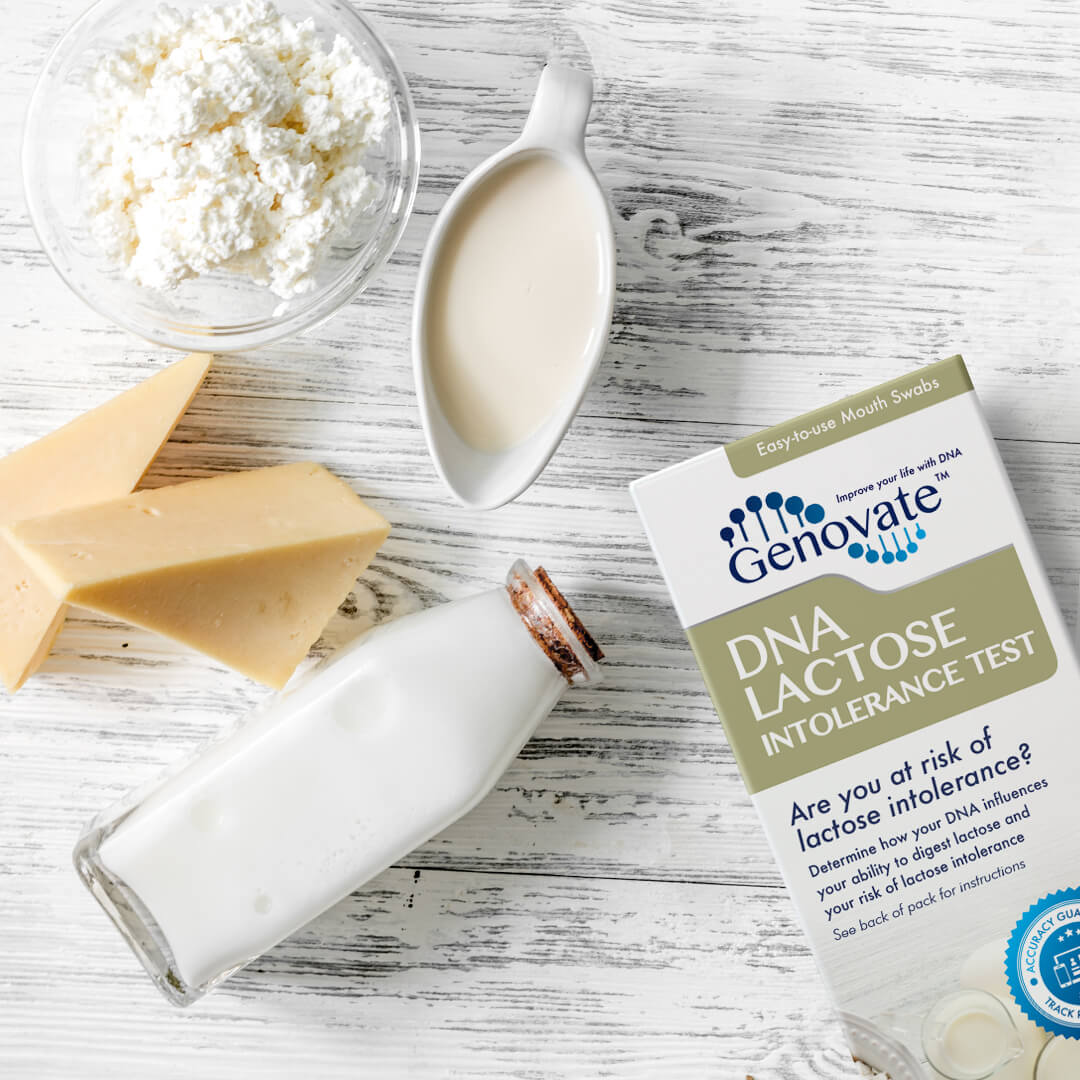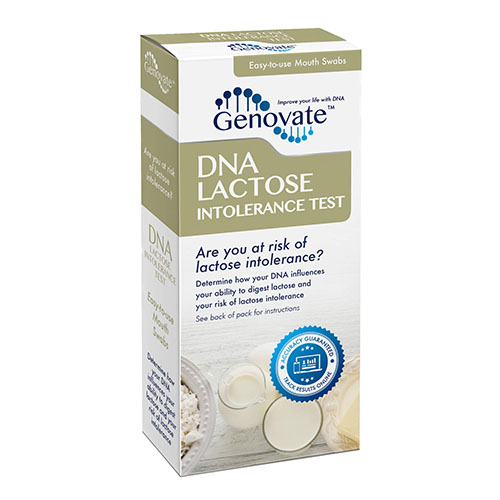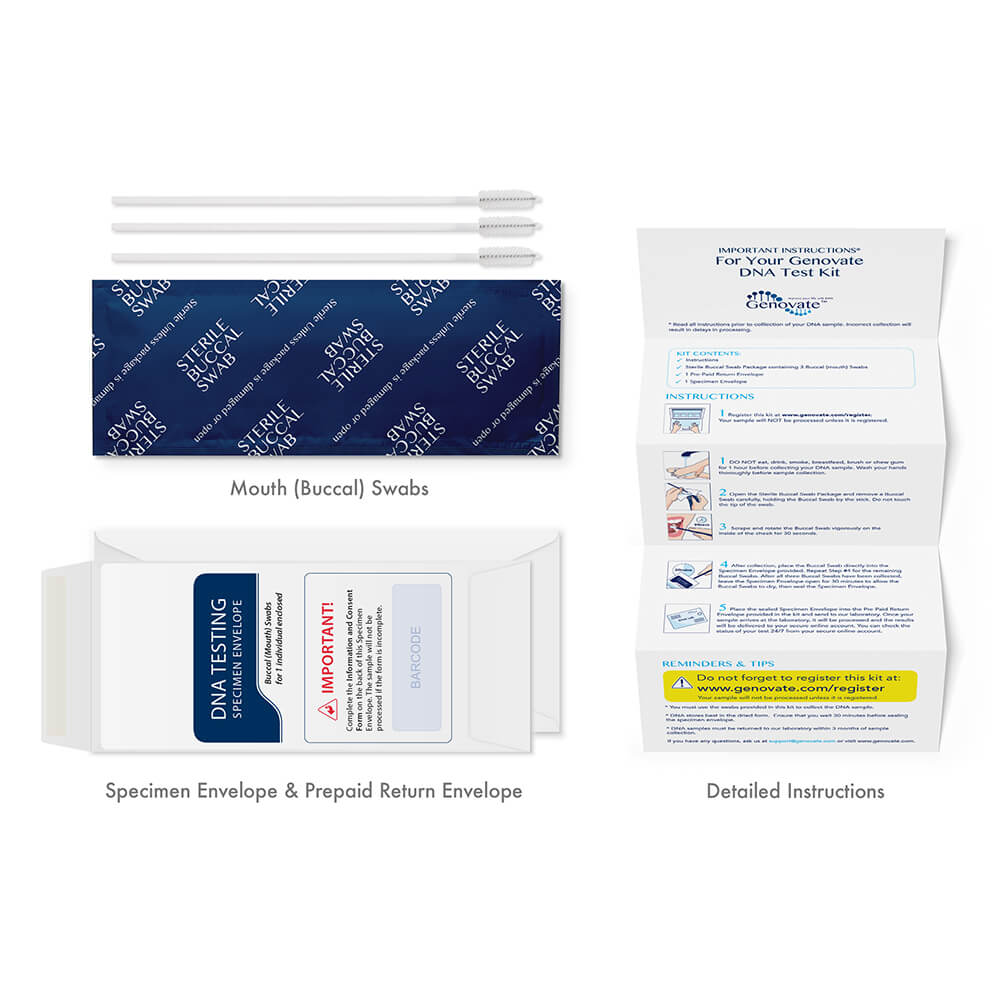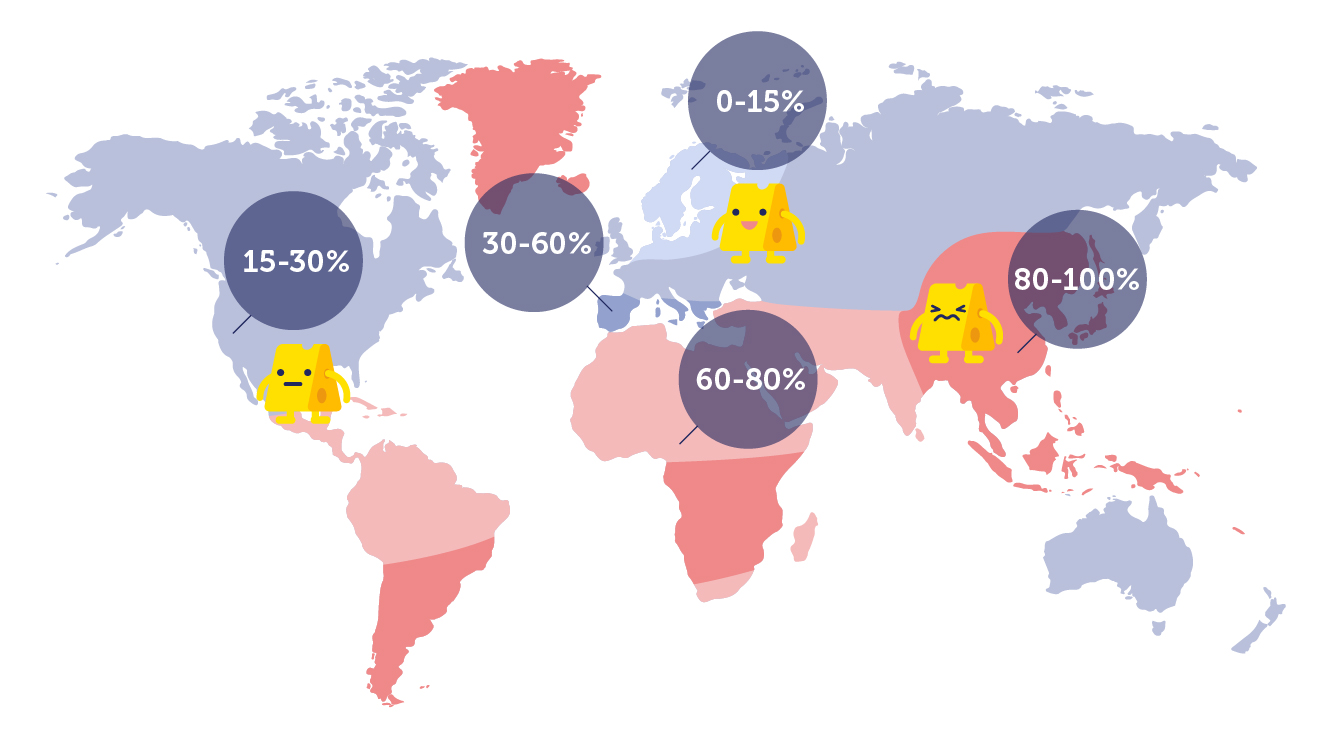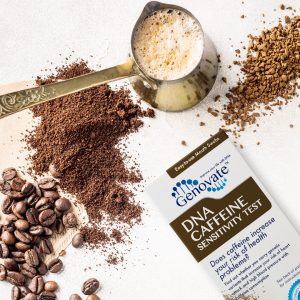Description
Lactose Intolerance vs Lactase Persistence
People who are lactose intolerant cannot digest and absorb the milk sugar lactose, because they produce only low levels of the lactase enzyme. This causes digestive symptoms like gas, bloating and diarrhea, when dairy products are consumed.
Lactase persistence is the opposite of lactose intolerance. People who are lactase persistent are able to produce the lactase enzyme for their entire lives, meaning they can continue to consume dairy products right through adulthood.
A simple mouth swab is all we need to analyze your DNA and determine whether you are at increased risk of lactose intolerance.
Genetics of Lactose Intolerance
Genetic variation is the strongest predictor of lactose intolerance and lactase persistence. This DNA test determines whether you have inherited any of the five common changes in the MCM6 gene that enable lactase persistence.
The MCM6 gene encodes a protein that controls the production of other proteins. This includes lactase, encoded by the nearby LCT gene. People with at least one of these variants are unlikely to suffer from lactose intolerance. Those that do not carry any of these variants have an increased risk of lactose intolerance.
How Common is Lactose Intolerance?
The likelihood of lactose intolerance depends on ethnicity. Lactose intolerance is the normal phenotype. The mutations associated with lactase persistence occurred, and were selected for, when there was an increased reliance on dairy as a food source.
Many ethnicities are mostly lactose intolerant, including 90% of Asian Americans, 70% of African-Americans, 95-100% of Native Americans and 50% of Mexican-Americans.
In contrast, less than 25% of Caucasians and only about 5% of people of Northern European ancestry are lactose intolerant, because dairy has been a food staple in their past.
Symptoms of Lactose Intolerance
Lactose intolerance causes undigested lactose to build up in the large intestine, resulting in the growth of gas-producing gut bacteria. Symptoms include:
- Bloating
- Flatulence
- Diarrhea
- Nausea
- Vomiting
- Abdominal pain or cramps
- Gurgling and rumbling sounds from the abdomen
Recommended Links:
Ranciaro A et al. (2014). Genetic Origins of Lactase Persistence and the Spread of Pastoralism in Africa. Am J Hum Genet. 94: 496–51O.

